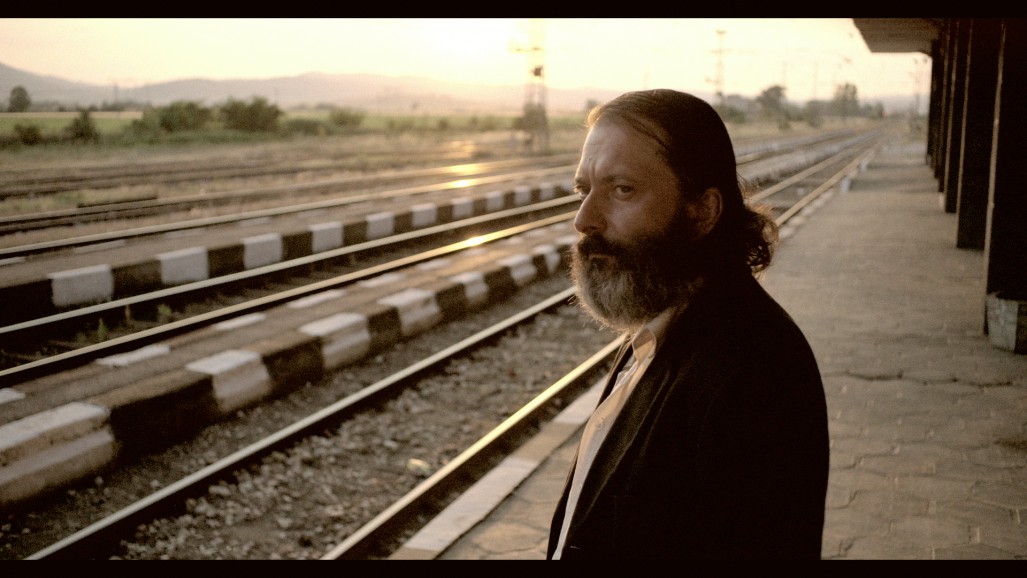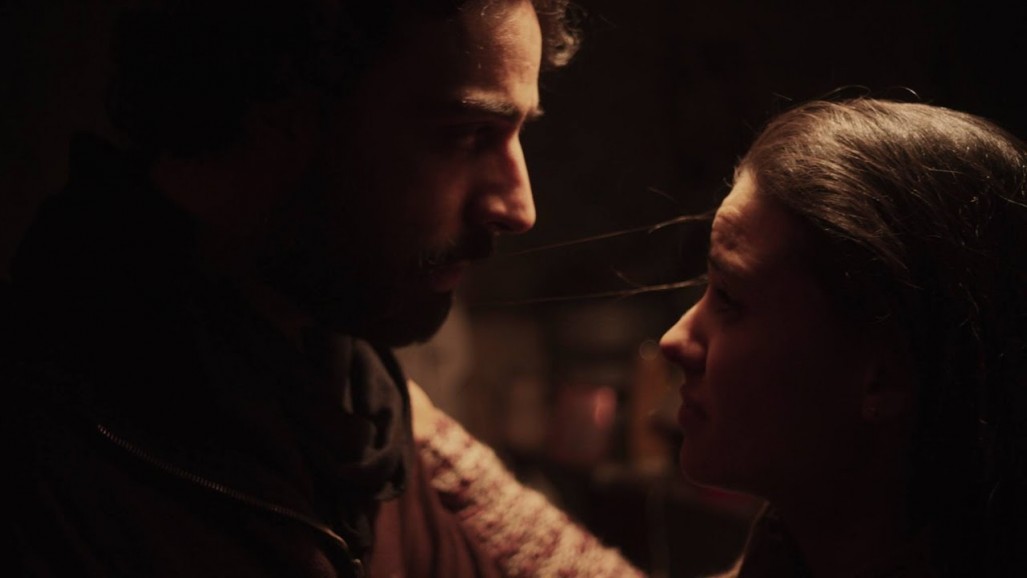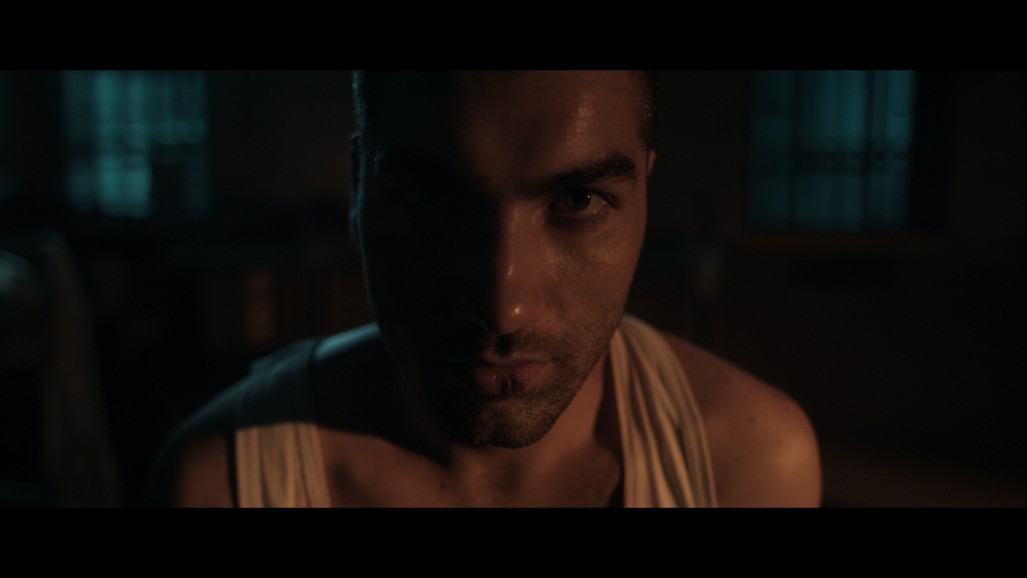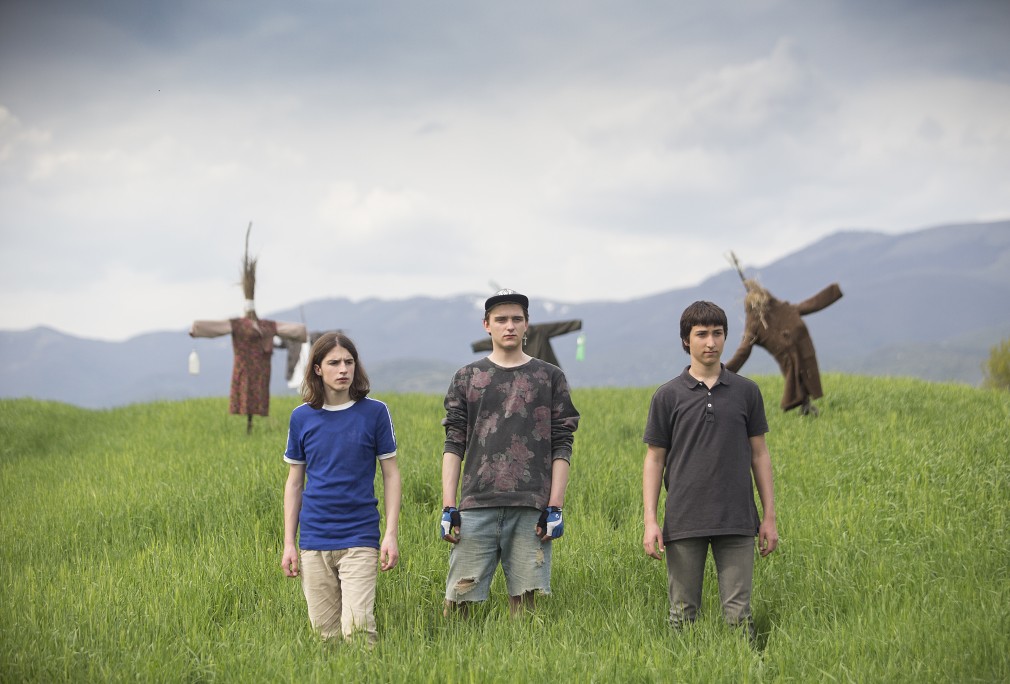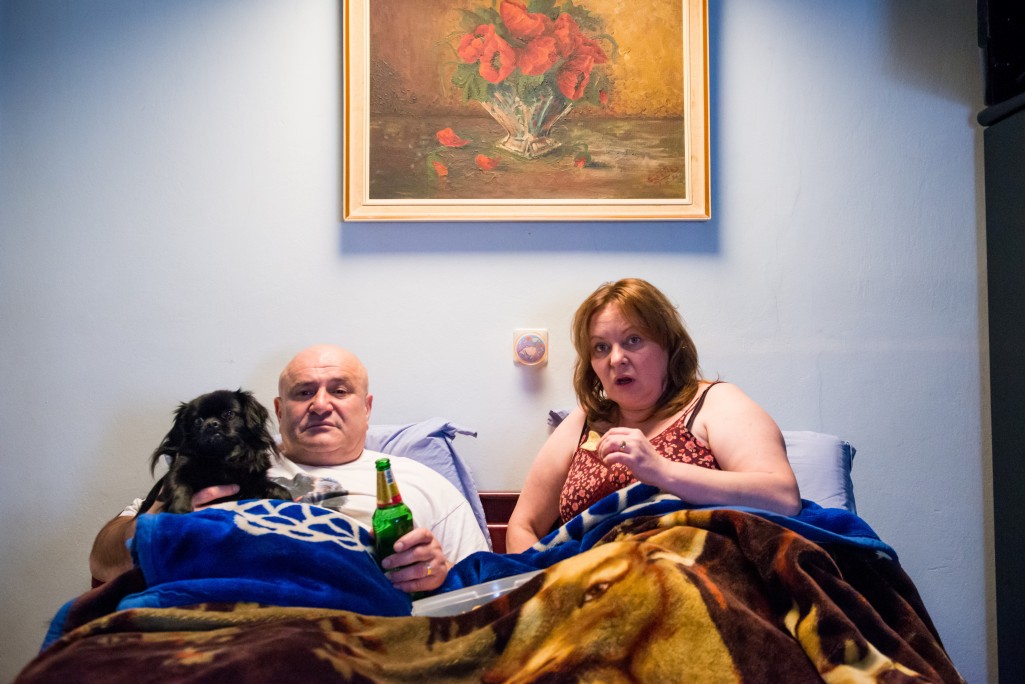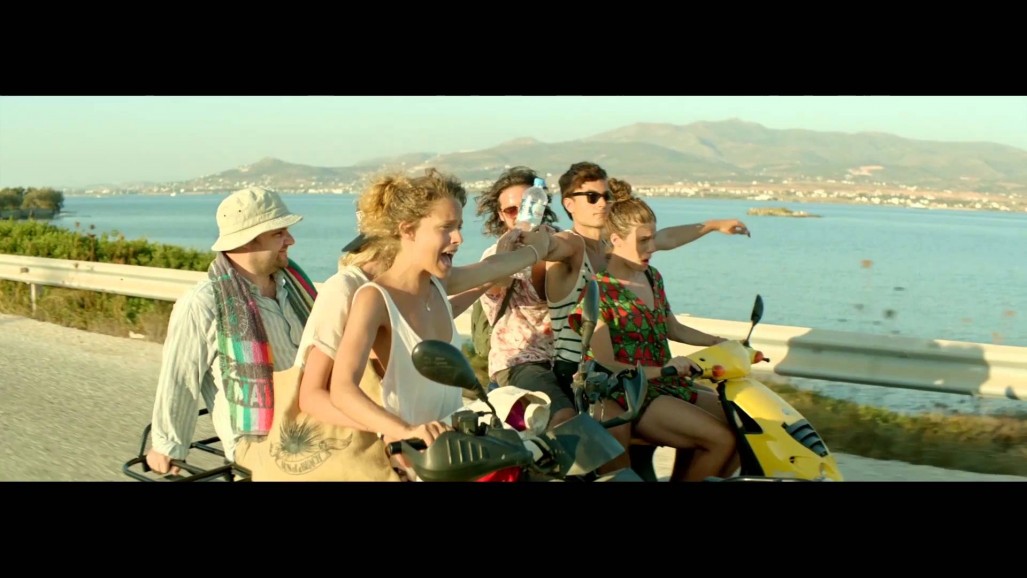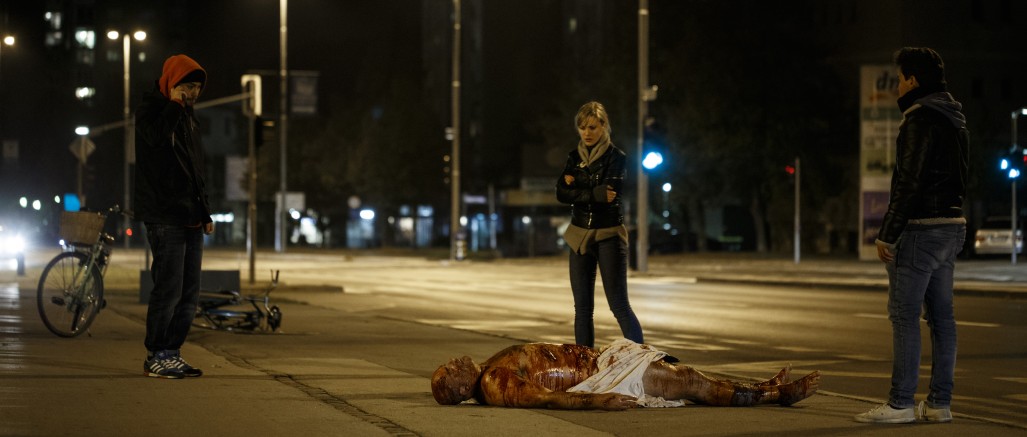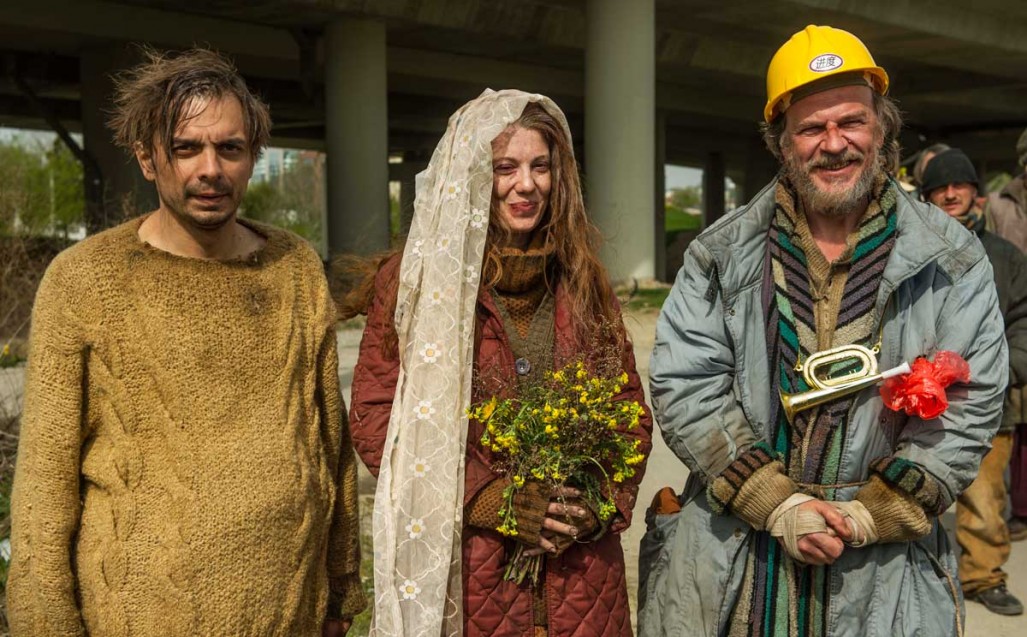"Slava" ("Fame"), the newest film from the creators of "Urok" ("Lesson") Christina Grozeva and Petar Valtchanov, is the newest title in this year's selection. The work is based on real events – a railroad watchman finds millions of money bills scattered around the tracks and hands them over to the police. The state awards him with a wristwatch for his valiant deed, but the watch… doesn't work, and the ministry's PR representative loses his personal one, which is a keepsake from his father. Here begins the struggle of the common man for keeping his dignity.
Starring are Stefan Denolyubov, Margita Gosheva, Kitodar Todorov, Milko Lazarov, Ivan Savov. Similarly to "Urok", Christina Grozeva and Petar Valtchanov's new film became a festival favourite, winning tens of prizes, among which Locarno, "Golden Rose" – Varna, Zadar, etc.
*
Awarded with a "Golden Bear" in Berlin in 12013 for his film "Child's Pose", Calin Peter Netzer participated in the main competition at Berlin with his new film "Ana, Mon Amour" a few days ago. The work of the Romanian director tells the story of Ana and Toma and the way that Ana's mental condition affects the life they have. When their parents try to stand in their way, it bolsters their relationship even more. Toma's devotedness helps Ana to overcome the hurdles of life, but things change and it turns out that Toma is the one who needs help to overcome the disintegration of their relationship.
*
"Groom's Block", the feature debut of the Turkish director Ilker Savaskurt, will have its world premiere in Sofia and is the only film participating in two competitions – The Balkan and The International for First and Second Films. The film tells a story of a man, arrested and thrown into prison, among people convicted for major sexual crimes – a place known as "Groom's Block". A different set of laws apply there, the wards are especially resourceful in inciting tension, and the convicts often take the law in their own hands. The story and the characters are a testimonial for the paradoxical prison standards and are a genuine reflection of the reality in Turkey…
*
A co-production between Macedonia, Belgium, and Slovenia, "When the Day Had No Name" by Teona Mitevska is a story of a lost generation, affected by the social cataclysms in the Balkans. Milan, Petar, Tzvetan, Atze, and Vladan are teenagers like everyone else. Their lives are similar – dysfunctional families, financial woes, and hopes for a better future. Right before Easter, their bodies are found not far from a pond near Skopje… Based on real events, the film is a sensitive glance upon the lives of young people, capsulated in the dynamic of a multi-ethnic country with an uncertain economy.
*
Winner of the Grand Prize for a Best Film at the Montreal Film Festival, "The Constitution" (Croatia/Czech Republic/Slovenia/Macedonia) by Rajko Grlic is an intimate love story about four people living in the same building in Zagreb. All of them are very different by social status, sexual orientation, political views, and religion. What connects them is not only the place they share, but also the confrontation with demons of their past which compel them to live in the past, and not in the present.
Says Grlic, "My intention was simple – to show real people, not dead ideas. This is the reason why I didn't create a tragedy out of this story and its characters. On the other hand, I wanted to tell the story of these "hardships" with a smile and warm love, which everybody could feel, even for the negative characters… My desire was to make a film about modern day Croatia, for the predominating hatred and intolerance".
*
"Suntan" is my most personal film" – says the Greek director Argyris Papadimitropoulos. – "We filmed it in the midst of summer at the small island Antiparos, which was full of party people. I was a 15 year old teenager when I started going there, and I still refuse to "surrender", although I'm dangerously close to the age of my character Kostis."
In the beginning of his 40's, he is not a typical representative of his age. He has no family, but he is a slave of his own body, and he is forced to watch while it mercilessly changes through the years.
"The suntan is magnificent, dangerous and fades as fast as youth does", reckons the director and carries this refrain throughout the film. The Greek/German co-production is distinguished with the Best Film Award at the Edinburgh Film Festival.
*
The director Damjan Kozole claims that "for the audience would be easier to feel "Nightlife" than to understand it." His newest film, a result from joint effort between Slovenia, Macedonia, and Bosnia & Herzegovina, asks questions, awakens many fears and deliberately leaves problems without a solution. Real life events are the basis of the dramatic thriller story of a well-known lawyer, found in a pool of blood at a main round in Ljubljana, all mangled by dogs. The physical wounds are found to be a lesser grief than the threat of ruining his reputation in society, and the shocked wife is a main character in the following consequence of events. The film was nominated for a "Crystal Globe" in the competition at Karlovy Vary and won the Directors Award.
*
"Scarred Hearts" by the Romanian director Radu Jude ("Amen") is based on the autobiographical novel of the same by Max Blecher. The film is a tale of the feelings and thoughts of a young man, who in the shadow of his own death, battles big philosophical questions about the meaning and goals of human existence.
Emanuil spends his days in a sanatorium. Falling in love with another patient, he portrays how he and the other patients live at their fullest, while their bodies are slowly declining. "Scarred Hearts" is distinguished by winning the Special Jury Prize at Locarno.
*
The Serbian-Bulgarian co-production "A Stinking Fairytale" by the script-writer and director Miroslav Momchilovic tells a story about love between two bums – Moma and Ema. Moma suffers from depression. Ema – from alcoholism. Moma likes Ema at first sight. Ema likes Moma at a second sight. Ema's baby had passed away a while ago and she started drinking. Or she first started drinking, and then the baby passed away. It doesn't matter now. What matters is that Moma is helping her to overcome the past…
*
"Tereddut" ("A dark grey") is a Turkish-French co-production, directed by Yesim Ustaoglu, and depicts a combination between details of a parallel study of two women – a psychiatrist living with her partner for many years, and a woman in a conservative and almost tyrannical family. The film puts the exceptionally topical focus (also in a global scale) on opportunities and restrictions, which apply for women in nowadays Turkey.
*
"The Black Pin" (Serbia/Montenegro) is an "exquisite and charming debut" of the young script-writer and director Ivan Marinovic. The action takes place in a remote village, full of superstitions and rituals. However, the moment when a casual conversation includes Kanye West, smartphone contracts and shady deals with foreign investors, the old and traditional is bound to clash with the new and modern, by an absolute inevitability.
"With a bold and original style, Ivan Marinovic finds a balance between bitter-sweet comedy and typical drama, avoiding crude caricaturizing and hot emotions, typical for Balkan cinema", writes "The Hollywood Reporter".
Starring are Stefan Denolyubov, Margita Gosheva, Kitodar Todorov, Milko Lazarov, Ivan Savov. Similarly to "Urok", Christina Grozeva and Petar Valtchanov's new film became a festival favourite, winning tens of prizes, among which Locarno, "Golden Rose" – Varna, Zadar, etc.
*
Awarded with a "Golden Bear" in Berlin in 12013 for his film "Child's Pose", Calin Peter Netzer participated in the main competition at Berlin with his new film "Ana, Mon Amour" a few days ago. The work of the Romanian director tells the story of Ana and Toma and the way that Ana's mental condition affects the life they have. When their parents try to stand in their way, it bolsters their relationship even more. Toma's devotedness helps Ana to overcome the hurdles of life, but things change and it turns out that Toma is the one who needs help to overcome the disintegration of their relationship.
*
"Groom's Block", the feature debut of the Turkish director Ilker Savaskurt, will have its world premiere in Sofia and is the only film participating in two competitions – The Balkan and The International for First and Second Films. The film tells a story of a man, arrested and thrown into prison, among people convicted for major sexual crimes – a place known as "Groom's Block". A different set of laws apply there, the wards are especially resourceful in inciting tension, and the convicts often take the law in their own hands. The story and the characters are a testimonial for the paradoxical prison standards and are a genuine reflection of the reality in Turkey…
*
A co-production between Macedonia, Belgium, and Slovenia, "When the Day Had No Name" by Teona Mitevska is a story of a lost generation, affected by the social cataclysms in the Balkans. Milan, Petar, Tzvetan, Atze, and Vladan are teenagers like everyone else. Their lives are similar – dysfunctional families, financial woes, and hopes for a better future. Right before Easter, their bodies are found not far from a pond near Skopje… Based on real events, the film is a sensitive glance upon the lives of young people, capsulated in the dynamic of a multi-ethnic country with an uncertain economy.
*
Winner of the Grand Prize for a Best Film at the Montreal Film Festival, "The Constitution" (Croatia/Czech Republic/Slovenia/Macedonia) by Rajko Grlic is an intimate love story about four people living in the same building in Zagreb. All of them are very different by social status, sexual orientation, political views, and religion. What connects them is not only the place they share, but also the confrontation with demons of their past which compel them to live in the past, and not in the present.
Says Grlic, "My intention was simple – to show real people, not dead ideas. This is the reason why I didn't create a tragedy out of this story and its characters. On the other hand, I wanted to tell the story of these "hardships" with a smile and warm love, which everybody could feel, even for the negative characters… My desire was to make a film about modern day Croatia, for the predominating hatred and intolerance".
*
"Suntan" is my most personal film" – says the Greek director Argyris Papadimitropoulos. – "We filmed it in the midst of summer at the small island Antiparos, which was full of party people. I was a 15 year old teenager when I started going there, and I still refuse to "surrender", although I'm dangerously close to the age of my character Kostis."
In the beginning of his 40's, he is not a typical representative of his age. He has no family, but he is a slave of his own body, and he is forced to watch while it mercilessly changes through the years.
"The suntan is magnificent, dangerous and fades as fast as youth does", reckons the director and carries this refrain throughout the film. The Greek/German co-production is distinguished with the Best Film Award at the Edinburgh Film Festival.
*
The director Damjan Kozole claims that "for the audience would be easier to feel "Nightlife" than to understand it." His newest film, a result from joint effort between Slovenia, Macedonia, and Bosnia & Herzegovina, asks questions, awakens many fears and deliberately leaves problems without a solution. Real life events are the basis of the dramatic thriller story of a well-known lawyer, found in a pool of blood at a main round in Ljubljana, all mangled by dogs. The physical wounds are found to be a lesser grief than the threat of ruining his reputation in society, and the shocked wife is a main character in the following consequence of events. The film was nominated for a "Crystal Globe" in the competition at Karlovy Vary and won the Directors Award.
*
"Scarred Hearts" by the Romanian director Radu Jude ("Amen") is based on the autobiographical novel of the same by Max Blecher. The film is a tale of the feelings and thoughts of a young man, who in the shadow of his own death, battles big philosophical questions about the meaning and goals of human existence.
Emanuil spends his days in a sanatorium. Falling in love with another patient, he portrays how he and the other patients live at their fullest, while their bodies are slowly declining. "Scarred Hearts" is distinguished by winning the Special Jury Prize at Locarno.
*
The Serbian-Bulgarian co-production "A Stinking Fairytale" by the script-writer and director Miroslav Momchilovic tells a story about love between two bums – Moma and Ema. Moma suffers from depression. Ema – from alcoholism. Moma likes Ema at first sight. Ema likes Moma at a second sight. Ema's baby had passed away a while ago and she started drinking. Or she first started drinking, and then the baby passed away. It doesn't matter now. What matters is that Moma is helping her to overcome the past…
*
"Tereddut" ("A dark grey") is a Turkish-French co-production, directed by Yesim Ustaoglu, and depicts a combination between details of a parallel study of two women – a psychiatrist living with her partner for many years, and a woman in a conservative and almost tyrannical family. The film puts the exceptionally topical focus (also in a global scale) on opportunities and restrictions, which apply for women in nowadays Turkey.
*
"The Black Pin" (Serbia/Montenegro) is an "exquisite and charming debut" of the young script-writer and director Ivan Marinovic. The action takes place in a remote village, full of superstitions and rituals. However, the moment when a casual conversation includes Kanye West, smartphone contracts and shady deals with foreign investors, the old and traditional is bound to clash with the new and modern, by an absolute inevitability.
"With a bold and original style, Ivan Marinovic finds a balance between bitter-sweet comedy and typical drama, avoiding crude caricaturizing and hot emotions, typical for Balkan cinema", writes "The Hollywood Reporter".



